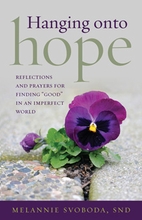Jesus gives us three parables about lost things: the lost sheep, the lost coin, and the lost son. Let’s focus on the first two parables. In one, the shepherd loses a sheep. He leaves the 99 others to seek the one that strayed. In the second parable, the woman loses a coin in her house. She madly searches everywhere for the coin, and when she finds it, she calls her neighbors over to celebrate her good fortune.
What strikes me immediately about both parables is this: how extreme the seeking is. The shepherd, for example, leaves 99 sheep defenseless while he traspes off to seek the single stray. I’m no shepherd, but to me his action seems pretty unreasonable—even reckless. What if a wolf came and attacked his flock while he was gone? What then? Wouldn’t it be far more reasonable for him to cut his losses and stay and protect the 99?

Then there’s the homemaker turning her house upside down seeking a lost coin. How much was that coin worth anyway? Jesus doesn’t tell us, but we sense it must have been worth a lot—at least to her. Why else, when she finds the coin, would she call her neighbors over to party with her?
For me, the extreme seeking and excessive celebrating are predicated on the value of the lost items—at least to the seeker. We might be puzzled by the value each seeker puts on a single item, one sheep and one coin. And if we understand that the shepherd and the homemaker are images of God, then what conclusions can we draw about God? One conclusion might be this: God values single things. God treasures distinct items. God loves things—even recklessly—in their particularity.

I see some other interesting corollaries here. First, God relates to things not as a group. God relates to things as individuals within the group. God detects each thing’s uniqueness. Second, God places an extremely high value on these lost things—so high that God is unreasonable in the seeking and is almost giddy with joy when the lost object is found.
If this is true, then what are some implications of this for us? One implication is that, in general, we too must love things in their particularity. When Linus in the Peanuts cartoon says, “I love mankind—it’s people I can’t stand,” we smile. Why? Because we know it’s easier to love the nebulous “mankind,” than it is to love some of the individuals who comprise “mankind”: the dishonest businessman, the annoying neighbor, this person so different from me.

Differentiating individuality within a group takes time and effort. That’s why we tend to categorize individuals. And when we do, we often draw dangerous conclusions: “All men are… all women are… All Blacks are… All whites are… All Muslims are… all Catholics are…. All Democrats/Republicans are… all old people are… ” Prejudice is alive and well in society because it’s simpler to put people into a groups rather than to get to know them and see them as individuals.

And finally, another insight these two parables give us is this: God’s love is utterly unfathomable! We ask, how can God possible love ALL the people in the world—in their particularity? How can God know and love you and me and every other person on the planet (not to mention those who have gone before us or will come after us.) We cannot imagine how—because our own love is often so restricted, conditional, reasonable, short-lived, safe.
And so we pray: God of unfathomable love, seek me in all the places I tend to hide. Give me the grace to see people not merely as members of a group, but as individuals. Help me to appreciate all things in their uniqueness and particularity. May I love more and more as you love all things: unconditionally, inclusively, uniquely, perseveringly. I ask for these graces through our all-loving Jesus and the power of his amazing Spirit. Amen.
For reflection:
Did anything in this reflection stand out for you? If so, what? Do you know why?
Have you ever experienced “unreasonable” or “reckless” love either as a giver or as a recipient?
Do you detect any prejudice in yourself? If so, towards whom or what? What might help you to rid yourself of some of your prejudice?
What helps you to appreciate God’s love?
PS: Let us pray for our president-elect Joe Biden and vice-president-elect Kamala Harris and all elected government officials that they made be guided by compassion, justice, wisdom, and integrity. And let us pray for one another that we may do our part to help in the healing process of our nation.
PS #2: Wednesday, Nov. 11, is Veterans’ Day. We pray for all Veterans: may we give them the help and support they need, and may we show our gratitude for their generous service to our country.
This song celebrates God’s “Measureless love.” Written in 1917 by Frederick Lehman, it is sung here by MercyMe with some beautiful photographs in the background.
I invite you to respond below (if my blog is accepting comments). If it’s not, I apologize again.






